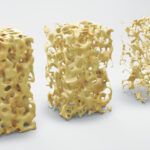The evidence is piling up: the gut microbiome influences the development and function of the immune, endocrine and nervous systems, which regulate energy balance and behaviour. The MyNewGut project looked into the role of the biome and the disease risk-reduction potential of dietary intervention.
The MyNewGut spanish project received support from the EU to shed light on the contribution of the human microbiome to nutrient metabolism and energy balance. Project coordinator Prof. Yolanda Sanz, head of the Microbial Ecology, Nutrition & Health Research Unit based at the National Research Council (IATA-CSIC) in Valencia, explains: “We also wanted to identify microbiome-related features that contribute to, or predict, obesity and associated disorders. We looked at how the microbiome is influenced by environmental factors and its role in brain and immune development and function in humans.” One case study conducted by the consortium involved the transference of gut microbiota from healthy donors to subjects with metabolic syndrome via faecal microbiota transplants (FMT). They demonstrated that a ‘healthy microbiota’ increases the striatal dopamine receptor expression in the brain (SPECTscans), which is a system involved in improved appetite control. This lead to reductions in food intake in a human intervention trial. “The findings demonstrate one of the causal mechanisms whereby the gut microbiota positively impacts energy balance and so improves metabolic health,” explains Prof. Sanz. “These findings could enable researchers to specifically target the gut-brain axis. This could be done either by diets that enrich our gut microbiota with these bacteria, or by providing the identified bacteria or metabolites as novel therapeutics. This could beneficially change food intake and behaviour in humans in the future.” High-protein diets (HPDs) are all the rage at the moment.
The project considered their impact through a randomised double-blind, placebo-controlled, parallel-design intervention trial. This investigated the effects of both the amount and types of proteins (casein or soy protein) on healthy, overweight volunteers. “Although high-protein diets are often effective for losing body weight, the increased protein intake also increases the proportion of protein products that reach the large intestine and are metabolised by the colonic microbiota. This generates toxic compounds, which also depend on the protein type, and should be considered in dietary recommendations.” Their findings are extensive, and highly relevant to our modern lifestyles. Through a longitudinal study conducted in children, the consortium also considered the impact of an unhealthy diet, including a high intake of simple sugar and fat. This is associated with a low-diverse microbiota and heightened inflammation in normal weight children that later develop obesity, compared to children that remained normal weight.







Leave a Reply